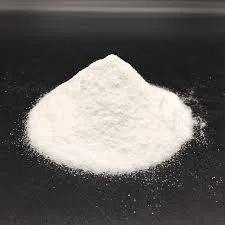
Dec . 13, 2024 02:02 Back to list
Ashland Hydroxyethyl Cellulose Applications and Benefits in Modern Industries
Exploring Ashland Hydroxyethyl Cellulose Applications and Benefits
Hydroxyethyl cellulose (HEC) is a versatile and widely used non-ionic, water-soluble polymer derived from cellulose, a natural polymer found in plant cell walls. Among the prominent producers of HEC is Ashland, a global leader in specialty chemicals. Ashland's hydroxyethyl cellulose exhibits unique properties that make it invaluable across various industries, including personal care, pharmaceuticals, construction, and food processing.
Properties and Characteristics
Ashland hydroxyethyl cellulose is notable for its excellent thickening, gel-forming, and film-forming abilities. It is available in a myriad of molecular weights and degree of substitution, allowing for tailored solutions based on specific application requirements. The polymer is soluble in cold and hot water, making it easy to incorporate into formulations without the need for high temperatures or aggressive mixing.
One of the standout characteristics of HEC is its pseudoplastic behavior, meaning that its viscosity decreases under shear stress; this property is particularly advantageous in applications such as coatings and adhesives where consistency during application is critical. Once applied, the viscosity stabilizes, providing a robust structure.
Applications in Personal Care
In the personal care industry, Ashland hydroxyethyl cellulose serves as a key ingredient in products such as shampoos, lotions, and gels. It acts as a thickener and stabilizer, improving the texture and feel of formulations. This is crucial in products like shampoos, where a pleasing viscosity can enhance the user experience. Additionally, HEC helps to stabilize emulsions, ensuring that oil and water-based ingredients remain mixed, ultimately contributing to the effectiveness and shelf-life of personal care products.
Furthermore, its film-forming properties make it useful in creating long-lasting formulations, such as leave-in conditioners and skin care treatments. HEC is also appreciated for its non-irritant nature, making it suitable for sensitive skin formulations.
Pharmaceutical Applications
ashland hydroxyethyl cellulose

In the pharmaceutical sector, Ashland hydroxyethyl cellulose is utilized as an excipient in various dosage forms including tablets, capsules, and topical applications. It plays a crucial role in controlling the release of active pharmaceutical ingredients (APIs), thereby enhancing bioavailability and efficacy. HEC's ability to form gels in the presence of water allows it to serve as a controlled release agent, a property that is particularly advantageous in oral drug delivery systems.
Moreover, HEC is incorporated into wound dressings and gels due to its moisture-retaining properties, promoting a conducive healing environment. Its biocompatibility ensures that it can be used safely in various medical applications.
Reinforcing Construction Materials
The construction industry also benefits from Ashland's hydroxyethyl cellulose, where it is used as a thickening agent in cementitious products like mortars and plasters. The addition of HEC improves workability and adhesion, enabling smoother application. Moreover, it helps in water retention, which is essential for the hydration of cement during curing, thus enhancing the durability of the materials.
In tile adhesives, HEC contributes to the slip resistance, allowing tiles to be positioned accurately before the adhesive sets. This not only improves the efficiency of installation processes but also ensures long-lasting performance.
Food Industry Uses
The food industry leverages the properties of Ashland hydroxyethyl cellulose as a thickener and stabilizer in various food products. It can improve texture and consistency in sauces, dressings, and dairy products. Additionally, HEC can enhance moisture retention in baked goods, contributing to an improved shelf life. As a safe, food-grade ingredient, it complies with the stringent regulations governing food additives, providing manufacturers with confidence in its use.
Conclusion
In conclusion, Ashland hydroxyethyl cellulose stands out as a multifunctional ingredient across diverse sectors. Its unique properties—such as thickening, stabilizing, and film-forming abilities—make it integral to various applications, from personal care products to pharmaceuticals, construction materials, and food processing. Its versatility and effectiveness continue to drive innovation and improvements in formulation technologies, underscoring its importance in modern industrial applications.
-
Versatile Hpmc Uses in Different Industries
NewsJun.19,2025
-
Redispersible Powder's Role in Enhancing Durability of Construction Products
NewsJun.19,2025
-
Hydroxyethyl Cellulose Applications Driving Green Industrial Processes
NewsJun.19,2025
-
Exploring Different Redispersible Polymer Powder
NewsJun.19,2025
-
Choosing the Right Mortar Bonding Agent
NewsJun.19,2025
-
Applications and Significance of China Hpmc in Modern Industries
NewsJun.19,2025







